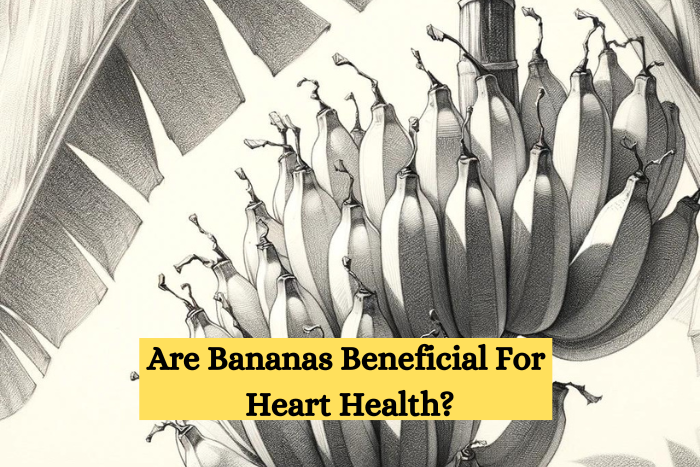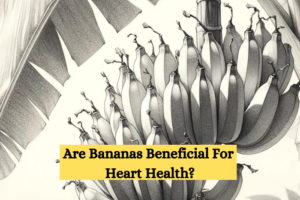Bananas support heart health due to their high potassium content, which regulates heartbeat, maintains fluid balance, and stabilizes blood pressure, countering sodium’s effects. Their fiber lowers cholesterol, and antioxidants combat oxidative stress and inflammation. Include bananas in a balanced diet for the best results.
I have a penchant for unpacking health claims about everyday foods, and today, my attention turns to a household favorite: bananas. You may enjoy them for their convenience or sweet taste, but have you considered their effects on your heart health?
Let’s peel back the layers on this topic. Bananas are often touted for their potassium content, a vital mineral for heart health.
Potassium helps regulate heartbeat and muscle function and maintains the balance of fluids in your body. By stabilizing blood pressure and countering the effects of sodium, this nutrient becomes crucial in the fight against hypertension, a leading risk factor for heart disease.
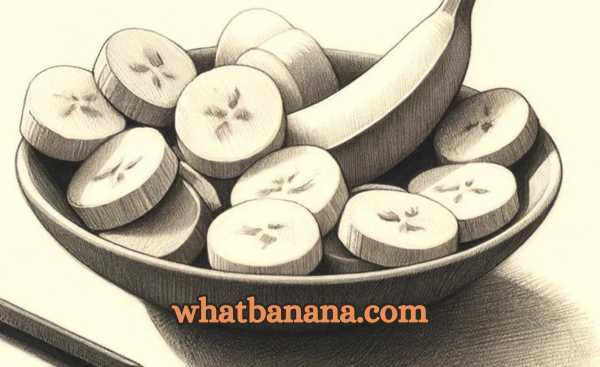
But the benefits don’t stop there. The fiber in bananas can contribute to better heart health by lowering cholesterol levels.
Fiber interacts with the cholesterol in your digestive system, preventing its absorption and reducing the amount in your bloodstream. You’ll also find a decent amount for your daily vitamin C and powerful antioxidant compounds in bananas, which support your cardiovascular system.
🍌 Nutritional Breakdown of Bananas🍌 |
|
|---|---|
| 🥔 Potassium | 422 mg (10% of daily value) |
| 🌾 Fiber | 3.1 grams (12% of daily value) |
| 🔋 Vitamin B6 | 0.5 mg (33% of daily value) |
| 🍊 Vitamin C | 8.7 mg (10% of daily value) |
| ⚡ Magnesium | 32 mg (8% of daily value) |
| Brought to You by whatbanana.com | |
These components help combat oxidative stress and inflammation, both of which are linked to atherosclerosis and heart disease. Current discussions on bananas and blood pressure offer persuasive affirmations.
Several studies indicate that consistent banana intake is associated with a modest decrease in blood pressure, presumably due to the potassium content. Although evidence continues to grow in favor of bananas as a heart-healthy option, it’s key to note that they are best when included as part of an overall balanced diet.
In the following section, I’ll walk you through practical ways to enjoy bananas and reap their cardiovascular benefits.
Going Bananas for Your Heart: How to Incorporate Them into Your Diet
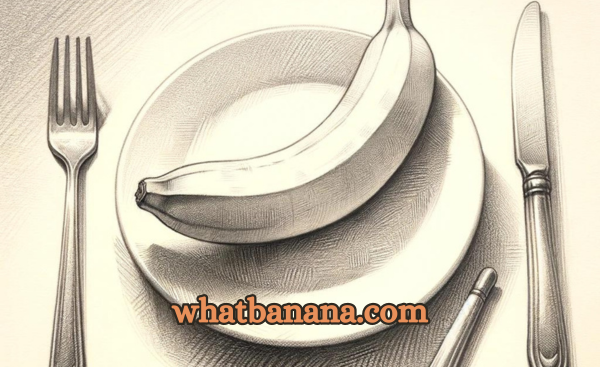
Incorporating bananas into your diet can be both simple and delicious. A banana sliced over your morning cereal, blended into a smoothie, or just eaten on its own as a midday snack are easy ways to enjoy the benefits.
However, it’s important to consume bananas in moderation as part of a balanced diet. For more information, read about the potential risks of eating too many bananas.
From hearty banana nut pancakes to a refreshing banana berry salad, you can find numerous recipes that make these heart-healthy fruits a staple in your culinary routine. Stick with one to two bananas a day to keep your potassium levels balanced and avoid excessive calorie intake.
Pay attention to the ripeness of bananas. Overripe bananas are higher in sugars, whereas slightly green bananas have more resistant starch, which can benefit your gut health.
If you have kidney problems, consult with your healthcare provider before increasing your banana consumption, as too much potassium may be harmful. Remember, while bananas do contribute to heart health, they should be part of a varied diet that includes other fruits and vegetables, whole grains, lean proteins, and healthy fats.
My Final Thoughts
- Bananas are rich in potassium, which helps regulate heartbeat and stabilize blood pressure.
- The fiber in bananas lowers cholesterol levels.
- Antioxidants in bananas combat oxidative stress and inflammation, reducing the risk of heart disease.
- Bananas can contribute to a modest decrease in blood pressure, as shown in several studies.
- Include bananas as part of a balanced diet with other fruits, vegetables, whole grains, and lean proteins.
Nutritionists often suggest that it’s not just about eating more bananas but ensuring you’re getting a wide range of nutrients from a variety of food sources. How do you incorporate heart-healthy foods like bananas into your daily routine, and what benefits have you noticed from doing so?
Let me know in the comments below!
FAQ: Bananas and Heart Health
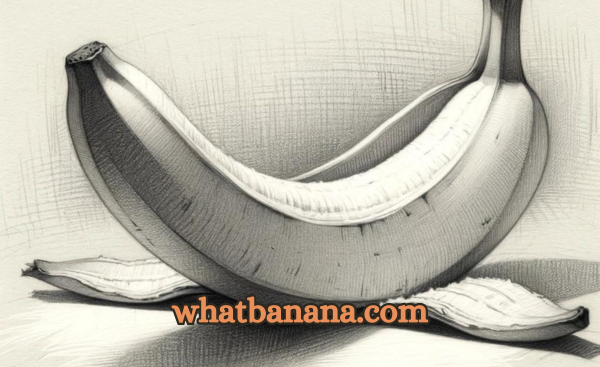
How do bananas help with heart health?
- Bananas are rich in potassium, which helps regulate heartbeat and blood pressure by balancing the effects of sodium. This reduces the risk of hypertension and heart disease (Cleveland Clinic).
- The fiber in bananas helps lower cholesterol levels by preventing its absorption in the digestive system, thus reducing the risk of cardiovascular issues (www.heart.org).
What other nutrients in bananas benefit the heart?
- In addition to potassium, bananas contain magnesium, which supports blood pressure regulation and overall heart function.
- Bananas also provide antioxidants and vitamin C, which combat oxidative stress and inflammation, reducing the risk of atherosclerosis and heart disease .
Can eating bananas reduce blood pressure?
- Yes, the potassium in bananas can help lower blood pressure. Regular consumption of bananas has been linked to modest decreases in blood pressure, contributing to better heart health .
- Combining bananas with other potassium-rich foods, like leafy greens or beans, can enhance this effect .
How should bananas be included in a diet for heart health?
- Incorporate bananas into your diet by adding them to smoothies, cereals, or as a snack. For example, a banana in your morning oatmeal or as an afternoon snack can provide steady potassium intake .
- Overripe bananas can be used in baking or smoothies, while slightly green bananas, which contain resistant starch, can be eaten to improve gut health and blood sugar control .
Are there any precautions when increasing banana consumption?
- If you have kidney problems, consult your healthcare provider before increasing your banana intake, as too much potassium can be harmful in such cases.
- Bananas: The Secret Weapon for a Healthier Heart
- Banana Safety 101: Which Varieties Are Edible?
- Are You Allergic to Bananas?
- Timing the Perfect Red Banana Ripeness! (Solved!)
- Ever Wondered Why Your Banana Tastes Spicy? Here’s the Answer!
- Is it Safe to Eat Bananas That Have Split Open? (3 Banana-Splitting Facts)
